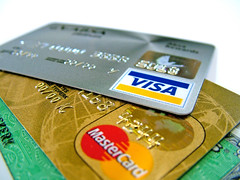Watch out for:
Attractive introductory rates for 12 months which will then rise substantially. Read the fine print.
Rate increases: Don't be 60 days late. The prohibition against rate increases during the first year or without 45 days notice might not apply.
Annual fees: Many cards will now have them. This helps the card issuers make money on those who pay their bill in full every month, avoiding interest.
Application fees: Really. To apply for the card. It's another form of interest payment. Heads up though: Annual and application fees can't be more than 25% of your credit limit.
Late fees: No, they haven't been banned. They may get "tiered" based on the balance owed.
Over-limit fees: You get to tell the credit card company if you're willing to pay them. If you don't, your purchase will be declined on the spot. Cards without overlimit fees: American Express and Discover.
And the credit card companies can still cut your credit limit and raise your rates without notice.
Make sure you use all your cards, because the banks are going to charge fees for "dormant accounts." Some other sneaky things to watch out for:
.... more annual fees; higher charges for balance transfers; fees for inactivity; surcharges on foreign transactions; or fees to reinstate expired points or miles on rewards cards. Some banks, for instance, are already charging customers $1 for getting their credit card statement in the mail, rather than getting it online.
And, you'll be seeing a surge in credit card offers in your mailbox. The banks have been preparing for this day for months, and they are primed and ready to solicit you with new offers. Again, read the fine print.




